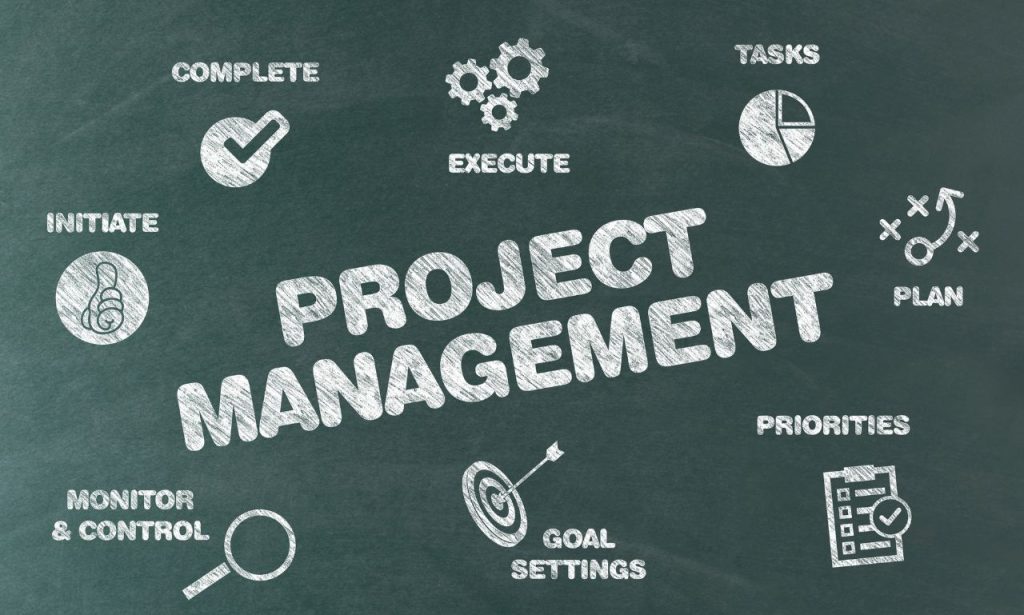Project management isn’t just about keeping tasks organized—it’s about orchestrating complex moving parts to deliver exceptional results. Today’s business landscape demands project managers who can adapt, communicate effectively, and drive teams toward success under pressure.
This comprehensive guide covers essential strategies for enhancing your project management capabilities. We’ll explore foundational skills, cutting-edge tools, proven methodologies, and real-world techniques that separate good project managers from great ones. Whether you’re starting your career in project management or looking to advance your existing skills, these insights will transform how you approach project leadership.
Develop Foundational Skills
Strong foundational skills form the backbone of effective project management. Time management is one of the most critical skills, yet many project managers struggle with it on a daily basis. Research from the Project Management Institute indicates that 37% of project failures are attributed to poor time management and unrealistic scheduling.
Successful project managers master the art of breaking down complex projects into manageable chunks. They understand that effective planning isn’t about creating perfect schedules—it’s about building flexibility into timelines while maintaining accountability and responsibility. This requires developing strong analytical thinking and the ability to anticipate potential roadblocks before they derail progress.
Communication skills deserve equal attention. Poor communication is a leading cause of 56% of project failures, according to industry studies. Effective project managers don’t just relay information; they translate technical details into language that resonates with different stakeholders. They know when to use formal reports versus casual check-ins, and they adapt their communication style to match their audience’s preferences.
Master Project Management Tools

Modern project management software has revolutionized how teams collaborate and track progress. However, tools are only as effective as the people using them. Smart project managers choose platforms that align with their team’s workflow rather than forcing teams to adapt to overly complex systems.
Popular options like Asana, Trello, and Monday.com each serve different project types and team sizes. Agile teams often gravitate toward Jira for its sprint planning capabilities, while creative teams might prefer tools with visual project boards. The key lies in understanding your team’s specific needs before committing to any platform.
Integration capabilities matter more than flashy features. Project management tools should connect seamlessly with existing systems your team already uses. When tools work together harmoniously, data flows naturally between platforms, reducing duplicate work and minimizing errors that often plague disconnected workflows.
Understand Project Management Methodologies
Agile methodology has gained tremendous popularity, but it’s not a one-size-fits-all solution. Waterfall approaches are still practical for projects with clearly defined requirements and minimal expected changes. Lean methodologies excel in environments focused on waste reduction and continuous improvement.
Experienced project managers often blend methodologies based on project requirements. They might use Agile sprints for software development phases while applying traditional planning approaches for budget management and resource allocation. This hybrid approach maximizes the strengths of different methodologies while minimizing their limitations.
Understanding when to apply specific methodologies comes from hands-on experience and continuous learning. Successful project managers study case studies from their industry, attend project management events and learn from both project successes and failures. They recognize that methodology is a tool, not a rigid framework that must be followed blindly.
Enhance Strategic Project Planning
Strategic project planning goes beyond creating task lists and setting deadlines. It requires understanding how individual projects align with broader organizational objectives. Project managers who think strategically consider the long-term impact of their decisions and how current projects influence future initiatives.
Effective planning involves stakeholder mapping and understanding the political dynamics within organizations. Smart project managers identify key influencers early and build relationships that support project success. They recognize that technical excellence means little if stakeholders don’t buy into the project vision.
Resource allocation demands a careful balance between current needs and future opportunities. Skilled project managers maintain buffer resources for unexpected challenges while avoiding the waste that comes from over-planning. They understand that realistic expectations often matter more than optimistic timelines when it comes to stakeholder satisfaction.
Improve Risk Management Abilities
Risk identification requires systematic thinking and the courage to address uncomfortable truths. Many project managers avoid discussing potential risks because they fear appearing negative or unprepared. However, acknowledging inherent risks early allows teams to develop mitigation strategies before problems escalate.
Effective risk management involves creating multiple contingency plans rather than relying on the hope that problems won’t occur. Smart project managers regularly review and update risk assessments as projects evolve. They understand that new risks emerge as projects progress, and yesterday’s mitigation strategies might not address tomorrow’s challenges.
Communication about risks must be clear and actionable. Stakeholders need to understand not just what could go wrong but what steps the team is taking to prevent or minimize potential impacts. This builds confidence and trust while ensuring everyone stays aligned on project realities.
Foster Effective Communication Channels
Creating precise lines of communication prevents the confusion that derails many projects. Successful project managers establish communication protocols early and ensure all team members understand how information flows through the organization. They avoid communication bottlenecks by empowering team members to communicate directly when appropriate.
Active listening becomes crucial when managing diverse teams with different perspectives and working styles. Project managers must listen not just to what people say but also to what they mean. This requires paying attention to nonverbal cues and understanding the context behind team members’ concerns or suggestions.
Regular check-ins maintain momentum while providing opportunities to address issues before they become significant problems. However, effective communication isn’t about constant meetings—it’s about meaningful interactions that move projects forward. Smart project managers know when to communicate and when to let teams focus on their work.
Set Realistic and Achievable Goals
Goal setting requires striking a balance between ambition and practicality. Unrealistic goals demotivate teams and set projects up for failure, while overly easy goals fail to drive the performance improvements organizations need. Effective project managers work with teams to establish challenging but achievable objectives.
Breaking large goals into smaller milestones creates opportunities for regular wins that maintain team motivation. These incremental achievements also serve as natural checkpoints for assessing progress and making course corrections as needed. Teams stay more engaged when they can see consistent progress toward larger objectives.
Stakeholder expectations must align with project realities from the beginning. This requires honest conversations about what is possible within the given constraints of time, budget, and resources. Project managers who build trust through realistic goal-setting find stakeholders more willing to support their projects when unexpected challenges arise.
What is 90% of a Project Manager’s Job?
Communication represents approximately 90% of a project manager’s daily responsibilities. This includes facilitating meetings, updating stakeholders, resolving conflicts, and ensuring everyone stays aligned on project objectives. Technical project management skills are essential, but the ability to keep people informed and engaged is what drives project success.
This heavy emphasis on communication explains why people skills often matter more than technical expertise for project management roles. Project managers spend most of their time coordinating between different groups, translating requirements, and ensuring information flows effectively throughout the organization.
How do you Upskill in Project Management?

Continuous learning through formal education, certification programs, and hands-on experience accelerates skill development. The Project Management Professional (PMP) certification remains highly valued, but practical experience often provides more immediate benefits for career advancement.
Mentorship from experienced project managers offers insights that textbooks can’t provide. Learning from both successful projects and project failures helps develop the judgment that separates competent project managers from exceptional ones. Industry conferences and professional associations offer valuable networking opportunities and provide exposure to emerging trends and developments.
Conclusion
Improving project management skills requires dedication to continuous learning and practical application of proven techniques. Success comes from mastering fundamental skills while staying current with evolving methodologies and tools. The most effective project managers combine technical competence with strong interpersonal skills and strategic thinking.
Remember that project management excellence develops over time through experience, reflection, and adaptation. Focus on building strong foundations while remaining open to new approaches that can enhance your effectiveness. Your commitment to skill development will not only advance your career but also contribute to the success of every project you manage.
ALSO READ: Is Supply Chain Management a Good Career?
FAQs
A: Focus on communication, time management, and risk assessment as foundational skills that support all other project management activities.
A: Basic competency typically develops within 1-2 years of consistent practice, while mastery requires 5-10 years of diverse project experience.
A: Certification can accelerate career advancement and provide structured learning, but hands-on experience remains equally essential for success.
A: Over-promising and under-communicating are common pitfalls that undermine project success and stakeholder confidence.
A: Build relationships early, communicate proactively, and focus on understanding their underlying concerns rather than just their stated positions.



